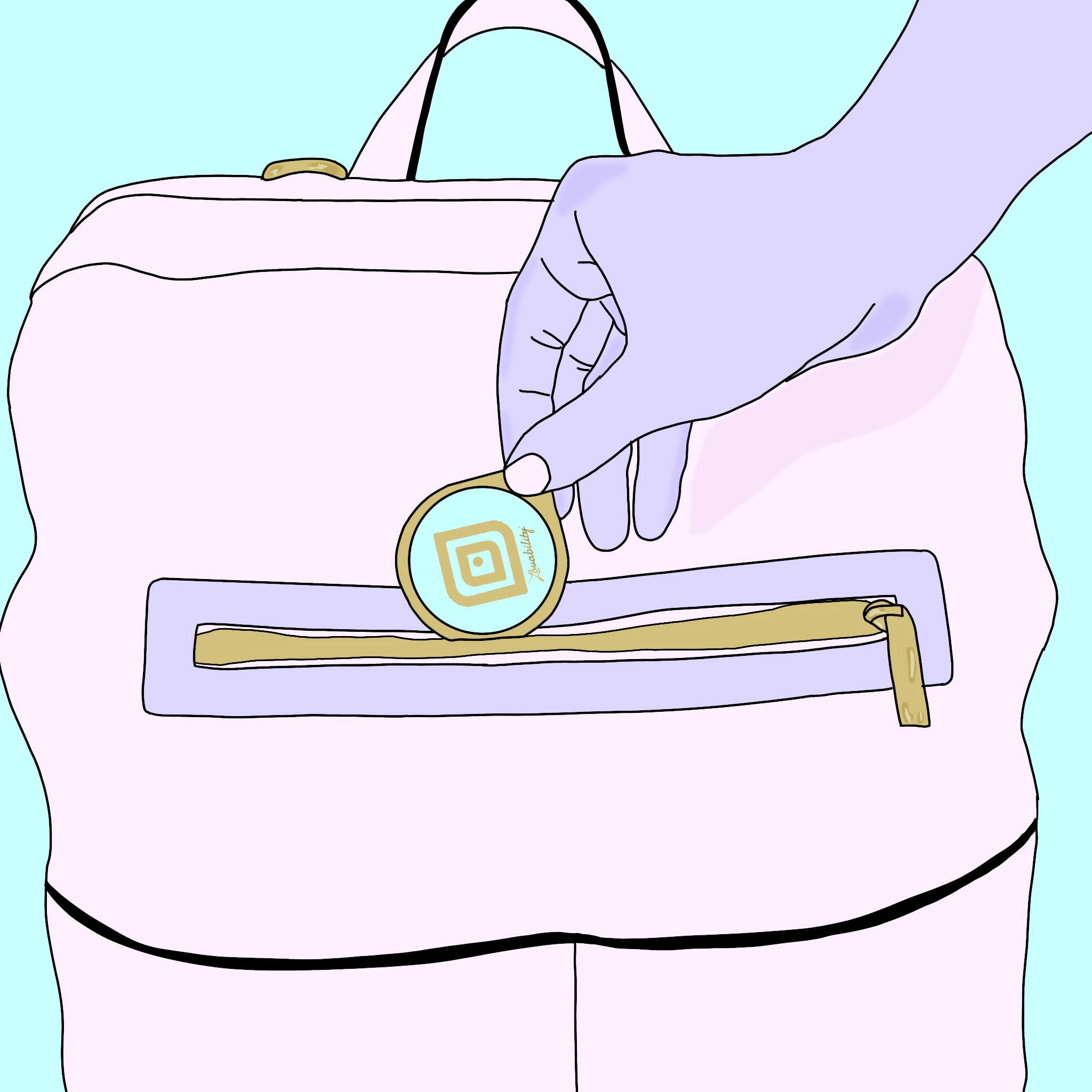Look babe, no one wants to get an STI. But the truth is, they’re uber common—so much so that about 1 in 5 people will get one at some point in their lives (big yikes). While the patriarchy wants us to be ashamed of them, the reality is that STIs are nothing to be embarrassed about. It can happen to literally anyone.

Getting an STI doesn't mean you're gross, slutty, or dirty— it just means you're human. And thanks to modern medicine, most types of STIs are easily treatable.
So if you think you might have one, don't freak out. We've got you covered with everything you need to know about the most common STIs so you can get tested, treated, and on with your life ASAP.
What are STIs? Are STIs different from STDs?
An STI, aka a sexually transmitted infection, is the umbrella term doctors use to refer to any infection that's passed from one person to another during sexual contact. That includes everything from vaginal, anal, and oral sex to skin-to-skin contact (like genital touching).
STD used to be the go-to term, but the word "disease" creates a lot of unnecessary stigmas and isn't entirely accurate anyway. Diseases are only a possible result of an infection, and not all infections will lead to disease. Regardless of which term is used, STI or STD, people are referencing the exact same thing: infections that get passed from one person to another during sex.
Which leaves us with this very important fact: you can have an STI and not know it. Being proactive about your sexual health means getting tested regularly, even if you don't have any symptoms.
What are the most common types of STIs? Bacterial STIs vs. Viral STIsExplained

Now there are dozens of types of STIs out there, but most can be placed in to one of two categories: bacterial or viral.
Bacterial STIs
Bacterial STIs are caused by (you guessed it) bacteria. The good news is that they're usually treatable with antibiotics. The bad news is that if left untreated, some types of bacterial STIs can lead to long-term health problems like infertility.
Here are the four most common bacterial STIs:
Chlamydia
Chlamydia is very sneaky and doesn’t leave a lot of evidence. Most people don't show any signs or think it’s caused by something else.
Signs & Symptoms
- Pain or burning when you pee
- Feeling the urge to pee more than normal
- Pain during sex
- Abnormal vaginal discharge ( either a strong smell or a yellowish color)
- Bleeding between periods
- Lower belly pain
- Pain, discharge, or burning around the butthole
- Diarrhea
How To Treat
Treating chlamydia is just as easy as getting it. A week of antibiotics will usually do the trick, as will notifying your partners. Chlamydia can spread like wildfire.
Gonorrhea
Nicknamed "the clap" due to the painful and ineffective early treatments for men (which involved clapping - yes, clapping - both sides of the penis at the same time, gonorrhea is also silent, especially in women.
People with penises are way more likely to have symptoms, and they'll typically begin a week after being infected. So make sure you and your partner have an honest, shame-free discussion if anything gets weird post-coitus.
Signs & Symptoms
- Pain or burning when you pee
- Bloody or yellowish vaginal discharge
- Bleeding between periods
- Anal itching (if the infection was transmitted via anal sex)
- Anal discharge
- Pain when you poop
- Sore throat (if the infection was transmitted via oral sex)
How To Treat
Antibiotics are back to save the day once again! Sometimes one pill is all it takes to rid you of the 'rhea, and others will require a week of treatment. Again, make sure all of your partners are informed and avoid getting frisky until your meds are gone.
Trichomoniasis
Now here's one you're probably not on a first-name basis with. Trichomoniasis (or Trich) is another often symptomless STI that can take anywhere from 3 days to a month to make itself known.
But if left untreated, trich can cause vaginitis—a vagina inflammation that can lead to a whole host of uncomfy feels like painful urination and nonstop itching.
Signs & Symptoms
- Abnormal vaginal discharge (look for green, yellow, and gray coloring as well as any frothiness or foul smells)
- Bloody vaginal discharge
- Itching or irritation around your vagina
- Genital swelling
- Painful sex
- Feeling the urge to pee a lot
Be careful of these symptoms because they often come and go, which can make realizing you have an STI a real pain.
How To Treat
Antibiotics are your new BFF. Only one dose of trich-fighting meds is needed to get rid of this STI, along with notifying your partner. No one wants to do the dance of passing trich back and forth.
Syphilis
If your health class hasn't changed since I went to high school (and I'm guessing it hasn't), this STI stirs a deeper sense of panic. Yes, painless sores are a possible symptom, but not everyone gets them.
Syphilis is actually as easily treatable as the other infections we've mentioned, but only if caught early. If left untreated, there's a small chance that it can cause more permanent damage to your internal organs.
Signs & Symptoms
Syphilis has different stages, and they can overlap, which makes decoding what stage you're in a little confusing. Look out for:
- Painless sores (also called a chancre) around your genitals or mouth
- Non-itchy rashes on your palms, soles of your feet, and other bodily parts
- Mild flu-like symptoms like a slight fever, sore throat, and muscle aches
How To Treat
If you catch it early, syphilis can be taken care of with some antibiotics. Treatment is still possible in the later stages, but it may cause more complications.
Viral STIs
This is where things get a little more serious. Viral STIs are caused by viruses, which cannot be cured. Now I know that brings up a lot of fear, but with the right medication and precaution, you can absolutely manage life with a viral STI.
Remember the most important thing: living with an STI doesn't make you any less worthy of love or great sex.

Here are the most common viral STIs:
Genital Herpes
Herpes is kinda like your first big crush or an iconic scene from your favorite movie—it stays with you for life. And you probably know more people with herpes than you realize.
Over half of Americans have oral herpes, and 1 in 6 have genital herpes. So if you're sexually active, getting it is a real possibility.
Signs & Symptoms
- Itchy, painful blisters around your genitals, butt, or even the inside of your thighs
- A burning sensation if pee gets on one of the sores
- Trouble peeing (due to the sores blocking your urethra)
- Itching
- Genital pain
- Swollen glands in your throat, under your arms, or in your pelvic area
- Fever
- Headache
- Chills
- Feeling achy
- Fatigue
- Cold sores
These symptoms come during what's called a herpes outbreak. Outbreaks last about 2 to 4 weeks and lessen in severity over time.The first is always the worst, and some people stop having outbreaks altogether.
Another thing to note is that genital herpes is caused by one of two types of viruses: herpes simplex virus type 1 (HSV-1) or herpes simplex virus type 2 (HSV-2).
HSV-1 is more active in the face (hence, more cold sores), and HSV-2 is more active in the genitals. So if HSV-1 infects your genitals, your case may be milder and harder to spot. The same goes for HSV-2 infecting your face around the lips and mouth.
How To Treat
As we said, there is currently no cure for herpes, and unfortunately, it will remain with you for life. But medication can shorten and even prevent outbreaks. Herpes is more annoying than harmful, but warm baths, loose clothes, and pain relievers can make living with sores a little easier.
Dating with herpes means being honest about your STI status. You'll have to avoid having sex during outbreaks, always use condoms, and inform any potential partners before you head to the bedroom.People will be more understanding than you think, but if someone tries to give you grief, just kick 'em to the curb.
Human Papillomavirus (HPV)
As it turns out, Ali Wong was right. If you've had sex, you've probably had HPV. Most cases have zero symptoms, aren't harmful, and will just disappear on their own. But some can cause genital warts and even cancer.
Signs & Symptoms
Here's the deal, friend: most HPV infections show no signs until there’s amore serious health issue. Getting tested for HPV regularly, along with keeping up with your Pap tests, is crucial to keeping the more severe forms of HPV at bay.
How To Treat
If you do get HPV, there's a good chance (90% according to theCDC) it will go away on its own in two years without health problems.Because there's no treatment for HPV, regularly testing and getting vaccinated are your best tools to fight against this STI.
How To Protect Yourself Against STIs
You don't have to wear a chastity belt or swear off sex forever to avoid STIs. Yes, the only way to truly prevent ever getting one is to practice abstinence, but that's not exactly being realistic if we're being honest with ourselves. The next best thing: practice safe sex, babe. That means enjoying allllll the over-the-pants lovin' and saving the rest for later.

But practicing safer sex can expand what bedroom treats you indulge in while reducing your risk of transmission. That looks like:
- Wearing condoms. This goes for all sexual activity where you're exposing your mouth or your genitals (i.e., vaginal, anal, and oral sex).
- Getting tested regularly. Aim for at least every year per the CDC or every time you add in a new partner.
- Being honest. Yes, an STI talk may kill the vibe for a moment, but it's necessary for not just protecting your physical health but your emotional and mental health, too. So don't shy away from asking the big questions.
End The STI Stigma
If I had to shout one thing off a mountaintop, it would be this: STIS ARE NOTHING TO BE EMBARRASSED ABOUT. They happen, just like getting a parking ticket or forgetting to unplug your straightener.
So please, if you get an STI, don't lock it away like it's some big shameful secret. Being honest about your diagnosis will slow down the spread, and embracing the fact that STIs are a part of an active sex life will empower others to let go of the shame once and for all.
About The Author
Emily Blackwood is a freelance journalist committed to answering the plaguing question of what makes us truly happy. Turns out, it's a lot. Her work has been published in SELF, HuffPost, and YourTango. You can learn more here.
______________________________________________________________
Medical Disclaimer: The information provided here is intended for educational and informative purposes only and is not intended to serve as medical or professional advice. If you have any concerns or questions about your health, you should always consult with a physician or other health-care professional.














